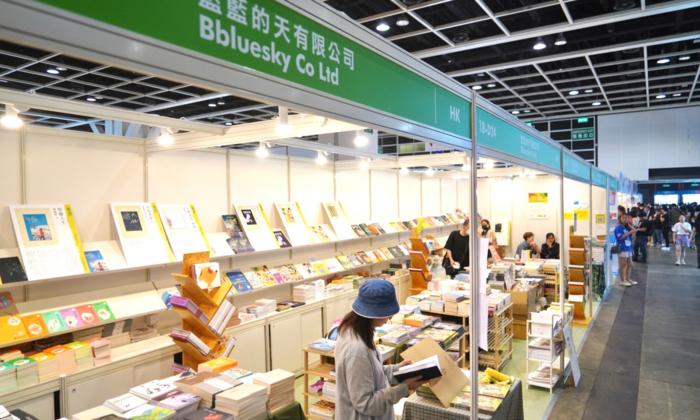On May 11, Ming Pao published two issues of Zunzi as usual while announcing its end with an editor’s note:
“The publication of the Emily Edition of Zunzi and Century Edition of ‘What Councilor?’ will be suspended from May 14. Ming Pao thanks Zunzi for witnessing the changes of eras with us over the past 40 years.”
Zunzi said that only Ming Pao would fully understand the reason for ending his cartoon.
He said, “There is always a way forward despite things being rough.”
Senior journalist Ching Cheong praised Zunzi’s satirical cartoons saying they can be more exceptional than an article. Cheong also said Zunzi’s suspension highlighted that “there is no press freedom in Hong Kong under the National Security Law.”

Local Authorities’ Disturbed by Zunzi
Zunzi had been chastised vocally by various government departments recently.In the satire cartoon of Jan. 6, a man lets out, “As long as it is verified to be safeguarding national security, the Hong Kong chief executive can do whatever he pleases.” Chan Kwok-kei, Chief Secretary For Administration, later denounced the satire.
In May, Zunzi’s cartoon satirizes the government appointing uneducated and sick people as members of the District Area Committees, District Fight Crime Committee, and District Fire Safety Committees. It writes, “As long as the Chief Executive feels it suitable, even they (sick or incompetent people) can join the District Fire Safety and Fight Crime Committee.”
The Last Published Comic

The comic strip “What Councilor?” above draws readers’ attention to a street stand.
A passer-by asks, “What street stand? Is it safe?”
The cartoon continues, with the passer-by asking where the anti-government (pro-democracy) stations are. The stand watcher responds, “You must take a flight to find them.”
‘No Room For Criticism’
Hong Kong Journalists Association (HKJA) expressed anguish over the discontinuation of Zunzi.HKJA believed that Zunzi’s end reflected the fact Hong Kong could no longer tolerate criticism, and the space for freedom of speech once again became more cramped, hurting the society.
HKJA pointed out, Zunzi had been supporting the work of HKJA since the ‘90s. It expressed their gratitude for Zunzi’s perseverance and uncompromising effort during turbulent times, his courage in speaking up and witnessing the change of eras alongside Hongkongers.”
Its statement affirmed its concern, “The government, sitting on top of enormous resources and public power, continuously hunts down literary figures. It shows Hong Kong cannot tolerate criticism at all.”
Additionally, media organizations might also worry the content they publish would be violently criticized or accused of breaking the law, which would only exacerbate self-censorship and undermine the space for freedom of journalism and expression, protected and guaranteed by the Basic Law.

Feel Regrets
Johannes Chan Man-mun, an Adjunct Professor of the Faculty of Law at the University of Hong Kong, expressed his regrets on a commercial radio program. He said he had been a reader of Zunzi Comics since he was a child.The professor said Zunzi Comics was an outlet for citizens to vent their dissatisfaction, which would help maintain social stability.
‘The Spirits Of A Media Professional’
Ching Cheong, a senior journalist, praised the Zunzi cartoon for being “very spicy” and “on-point” and its fulfillment as a satirical comic for current issues. “A good comic can be better than any article. Everyone will smile and share a sense of agreement after reading it.”Cheong said the strength of a satirical comic could be comparable to a written article if it could grasp the precision of time and an event while expressing it creatively.
Chan admired the courage of Zunzi and his emphasis on “never self-limit or self-censor.” “Seeing that Zunzi has been forging ahead under tremendous pressure, he has remained at his post and lived out the spirit a media professional should have.”






